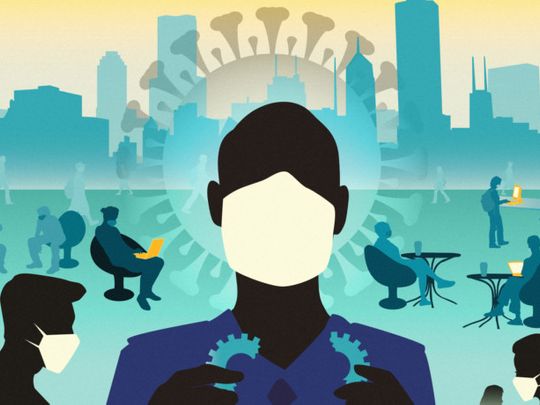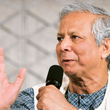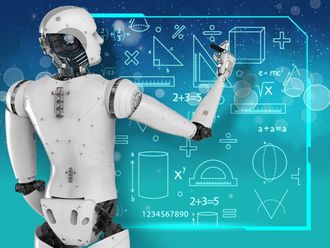
Extent of damage that the coronavirus pandemic is causing the world is just mind-boggling. However, despite this massive damage, it offers us an unparalleled opportunity. Right now, the whole world has to address a big question. It is not about how to get the economy running again.
Luckily, we know the answer to that. We have gathered good experiences of managing of a recovery process. The big question that we have to answer is: Do we take the world back to where it was before coronavirus came? Or, do we redesign the world?
Decision is entirely ours
Needless to say that the pre-coronavirus world was not good to us. Until coronavirus became the news, the whole world was screaming about all the terrible things that were about to happen to the world. We were literally counting our days when the whole planet would be unfit for human existence through climate catastrophe; how we were under a serious threat of massive unemployment created by artificial intelligence; how wealth concentration was reaching an explosive level.
We were reminding each other that the current decade would be the decade of last chance. After this decade, all our efforts will bring only marginal results, inadequate to save our planet.
Should we go back to that world? Choice is ours
Coronavirus suddenly changed the context and calculus of the world. It has opened up audacious possibilities that never existed before. Suddenly, we are at tabula rasa ( a clean slate or mind). We can go in any direction we want. What an unbelievable freedom of choice!
Before we restart the economy, we must agree on what kind of economy we want. First and foremost, we have to agree that the economy is a means. It facilitates us to reach the goals set by us. It should not behave like a death trap designed by some power to punish us. We should not forget for a moment that it is a tool made by us. We must keep on designing and redesigning it until we arrive at the highest collective happiness.
If at any point we feel that it is not taking us where we want to go, we immediately know that there is something wrong with its hardware or software that we are currently using. All we have to do is to fix it. We cannot excuse ourselves by saying ‘sorry we cannot achieve our goals because our software or hardware will not let us do that’. That would be an unacceptably lame excuse.
If we want to create a world of zero net carbon emission, we must build the right hardware and software for it. If we want a world of zero unemployment, we have to do the same. If we want a world where there will be no concentration of wealth, we need to do the same. It is all about building the right hardware and the right software. Power is in us.
When human beings set their minds to get something done, they just do it. Nothing is impossible for human beings. The most exciting news is that the coronavirus crisis offers us almost limitless opportunities to make a fresh start. We can start designing our hardware and software on an almost clean screen.
Post-pandemic redesigning must be based on social and environmental consciousness.

One simple unanimous global decision will help us tremendously: A clear instruction that we don’t want to go back to where we have come from. We don’t want to jump into the same frying pan in the name of recovery.
One simple unanimous global decision will help us tremendously: A clear instruction that we don’t want to go back to where we have come from. We don’t want to jump into the same frying pan in the name of recovery. We should not even call it a ‘recovery’ programme at all. To make our purpose clear, we may call it a ‘reconstruction’ programme. Businesses will be made to play a key role to make it happen.
The point of departure for post-coronavirus reconstruction programme must be putting social and environmental consciousness firmly at the centre stage for all decision-making.
Governments must guarantee that not a single dollar will be offered to anyone unless the government is sure that it will bring the maximum social and environmental benefit, compared to all other options. All the reconstruction-related action must lead up to the creation of a socially, economically and environmentally-conscious economy for the country, as well as for the world.
Time is now
We start with ‘reconstruction’ packages for social-consciousness driven plans and actions. We must design our plans right now, when we are in the thick of the crisis. When the crisis will be over, there will be a stampede of old ideas and old examples of bailouts to rush with the actions the usual way.
Strong cases will be made to derail the new initiatives by saying these are untested policies. (When we proposed that Olympic Games can be designed as social businesses, opponents made the same arguments. Now Paris Olympic 2024 is being designed that way with increasing excitement along the way.) We’ll have to get ready before the stampede begins. Time is now.
Social business
In this comprehensive reconstruction plan, I propose to give the central role to a new form of business called social business. It is a business created solely for solving people’s problems, without taking any personal profit by the investors except to recoup the original investment. After the original investment comes back, all subsequent profits are ploughed back into the business.
Governments will have many opportunities to encourage, prioritise, open up space for social businesses to undertake major redesigning responsibilities. At the same time, governments should not expect social businesses show up everywhere at the time and size they are needed.
Governments must launch their programmes, such as taking care of the destitutes and the unemployed through traditional welfare programmes, offering health care, reviving all essential services and supporting all types of businesses where social business options are slow to come forward.
To speed up the entry of social businesses, governments can create Social Business Venture Capital Funds, centrally and locally, encourage private sector, foundations, financial institutions, investment funds, to create Social Business Venture Capital Funds, encourage traditional companies to become social businesses themselves or take in social business partners, corporates and all businesses may be encouraged to have their own social businesses or create joint venture social businesses with social business partners.
Under the rebuilding programme, governments can finance social businesses to buy up companies and tie up with needy companies to transform them into social businesses. Central banks can allow social businesses, like other businesses, to receive financing from financial institutions to invest in stock market.
Under the rebuilding programme, governments can finance social businesses to buy up companies and tie up with needy companies to transform them into social businesses. Central banks can allow social businesses, like other businesses, to receive financing from financial institutions to invest in stock market.
There will be so many opportunities arising during the rebuilding process. Governments should involve as many social business actors as possible.
Who are the social business investors?
Who are the social business investors? Where do we find them? They are everywhere. We don’t see them because our existing economic textbooks don’t recognise their existence.
As a result, our eyes are not to trained to see them. Only recently, economics courses are including some discussions on topics such as social business, social entrepreneurship, impact investment, non-profit organisations etc as side-issues inspired by the global admiration for Grameen Bank and microcredit.
As long as economics remains a science for profit maximisation, we cannot rely entirely on it for the reconstruction programme, which is based on social and environmental consciousness. The whole strategy will be to enlarge the proportion of social business in the total economy as the economy grows.
Success of social business will be visible when not only it will grow into larger percentage of the economy, but also there will be a rapid growth in the number of entrepreneurs where same entrepreneurs are doing both types of businesses.
This will signal the beginning of an economy driven by social and environmental consciousness.
As soon as government policy starts recognising the social business entrepreneurs and investors, such entrepreneurs and investors will come forward enthusiastically to play the important social role demanded by the historical opportunity. Social business entrepreneurs are not members of a small do-gooder community.
This is a significant global ecosystem that includes giant multinational companies, big social business funds, many talented CEOs, corporate bodies, foundations, trusts, with many years of experiences in financing and running global and local social businesses.
When the concept and the experiences of social businesses start receiving government attention, many hard-core personal profit-makers will be happy to bring out the unexplored part of their talent to become successful social business entrepreneurs and play very valuable social roles at times of social and economic crises like climate crisis, unemployment crisis, wealth concentration crisis, etc.
People are born as entrepreneurs, not job-seekers
Reconstruction programme must break a traditional division of work between citizens and the government. It is taken for granted that the citizens’ role is to take care of their families and pay taxes; it is the responsibility of the government (and to a limited extent of non-profit organisations) to take care of all collective problems such as climate, jobs, health care, education, water and so on.
Reconstruction programme should break this wall of separation and encourage all citizens to come forward and show their talent as problem-solvers by creating social businesses. Their strength is not in the size of their initiatives, but in their number. Each small initiative multiplied by a big number turns out to be a significant national action.
One problem that social business entrepreneurs can immediately address will be the problem of unemployment created by the collapse of the economy. Social business investors can get busy with creating social businesses to create jobs for the unemployed.
They can also open up the option of transforming the unemployed into entrepreneurs and demonstrating that human beings are born as entrepreneurs, not as job-seekers. Social businesses can engage themselves in creating a robust health system in collaboration with the government.
A social business investor doesn’t necessarily have to be an individual. It can be institutions, such as investment funds, foundations, trusts, social business management companies. Many of these institutions know very well how to work in friendly ways with the traditional owners of the companies.
Out of the desperation and urgency of the post-coronavirus situation, a right call from a government can create a surge of activities that were never known before. This will be the test of leadership to show how a world can be inspired to be re-born in completely unknown ways, coming from the youths, the middle-aged and the old, from men and women.
No place to hide
If we fail to undertake a social and environmental consciousness-driven post-pandemic programme then we will be heading for a catastrophe that will be many times worse than what coronavirus has brought.
We can hide inside our homes from coronavirus, but if we fail to address the deteriorating global issues, we’ll not have any place to hide from angry Mother Nature and the angry masses all around the world.
Professor Muhammad Yunus is social entrepreneur, banker, economist and civil society leader who was awarded the Nobel Peace Prize for founding the Grameen Bank and pioneering the concepts of microcredit and microfinance.








